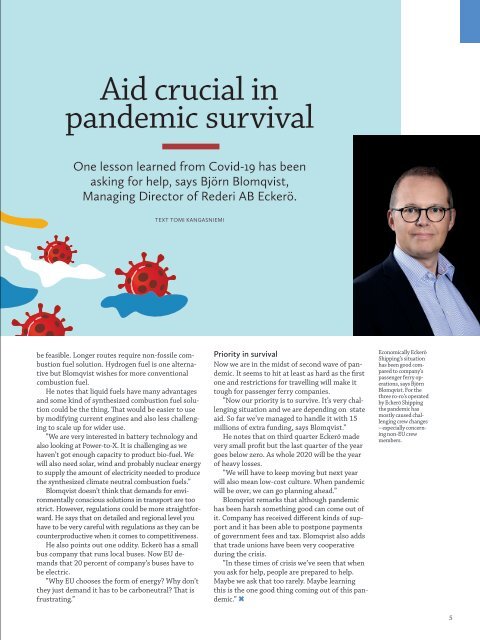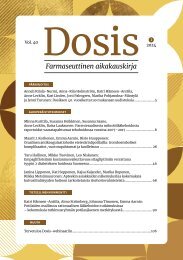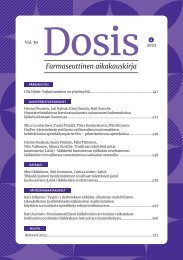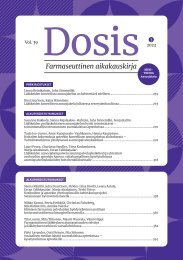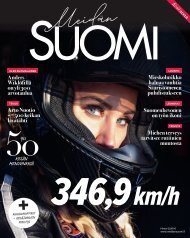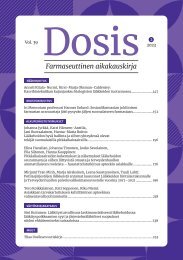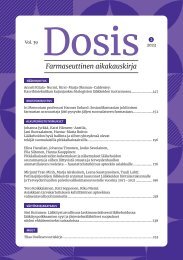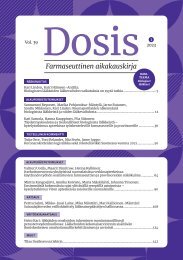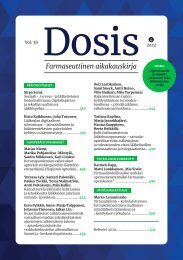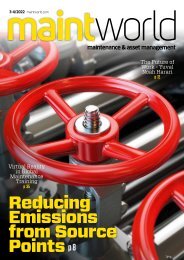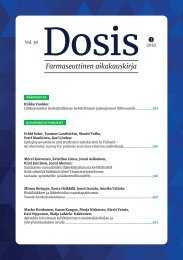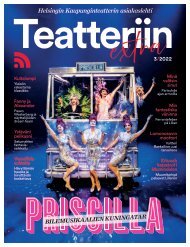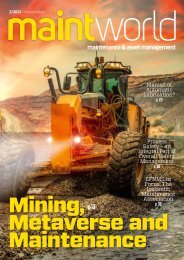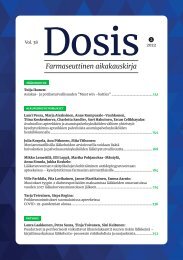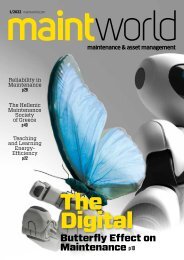You also want an ePaper? Increase the reach of your titles
YUMPU automatically turns print PDFs into web optimized ePapers that Google loves.
Aid crucial in<br />
pandemic survival<br />
One lesson learned from Covid-19 has been<br />
asking for help, says Björn Blomqvist,<br />
Managing Director of Rederi AB Eckerö.<br />
TEXT TOMI KANGASNIEMI<br />
be feasible. Longer routes require non-fossile combustion<br />
fuel solution. Hydrogen fuel is one alternative<br />
but Blomqvist wishes for more conventional<br />
combustion fuel.<br />
He notes that liquid fuels have many advantages<br />
and some kind of synthesized combustion fuel solution<br />
could be the thing. That would be easier to use<br />
by modifying current engines and also less challenging<br />
to scale up for wider use.<br />
”We are very interested in battery technology and<br />
also looking at Power-to-X. It is challenging as we<br />
haven’t got enough capacity to product bio-fuel. We<br />
will also need solar, wind and probably nuclear energy<br />
to supply the amount of electricity needed to produce<br />
the synthesized climate neutral combustion fuels.”<br />
Blomqvist doesn’t think that demands for environmentally<br />
conscious solutions in transport are too<br />
strict. However, regulations could be more straightforward.<br />
He says that on detailed and regional level you<br />
have to be very careful with regulations as they can be<br />
counterproductive when it comes to competitiveness.<br />
He also points out one oddity. Eckerö has a small<br />
bus company that runs local buses. Now EU demands<br />
that 20 percent of company’s buses have to<br />
be electric.<br />
”Why EU chooses the form of energy? Why don’t<br />
they just demand it has to be carboneutral? That is<br />
frustrating.”<br />
Priority in survival<br />
Now we are in the midst of second wave of pandemic.<br />
It seems to hit at least as hard as the first<br />
one and restrictions for travelling will make it<br />
tough for passenger ferry companies.<br />
”Now our priority is to survive. It’s very challenging<br />
situation and we are depending on state<br />
aid. So far we’ve managed to handle it with 15<br />
millions of extra funding, says Blomqvist.”<br />
He notes that on third quarter Eckerö made<br />
very small profit but the last quarter of the year<br />
goes below zero. As whole <strong>2020</strong> will be the year<br />
of heavy losses.<br />
”We will have to keep moving but next year<br />
will also mean low-cost culture. When pandemic<br />
will be over, we can go planning ahead.”<br />
Blomqvist remarks that although pandemic<br />
has been harsh something good can come out of<br />
it. Company has received different kinds of support<br />
and it has been able to postpone payments<br />
of government fees and tax. Blomqvist also adds<br />
that trade unions have been very cooperative<br />
during the crisis.<br />
”In these times of crisis we’ve seen that when<br />
you ask for help, people are prepared to help.<br />
Maybe we ask that too rarely. Maybe learning<br />
this is the one good thing coming out of this pandemic.”<br />
✖<br />
Economically Eckerö<br />
Shipping’s situation<br />
has been good compared<br />
to company’s<br />
passenger ferry operations,<br />
says Björn<br />
Blomqvist. For the<br />
three ro-ro’s operated<br />
by Eckerö Shipping<br />
the pandemic has<br />
mostly caused challenging<br />
crew changes<br />
– especially concerning<br />
non-EU crew<br />
members.<br />
5


